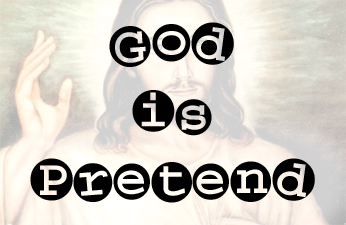This is an excerpt from The Reason Revolution: Atheism, Secular Humanism, and the Collapse of Religion by Dan Dana, a short, FREE e-book available at Smashwords, Goodreads, and Amazon ($0.99).
Readers are invited to post online reviews at the download site. Thank you!
More info: dandana.us/atheism
—> Follow The Reason Revolution on Twitter <—
++++++++++++++++++++++++++++++++++++++++++++++++++++++++++++++++
A quiet revolution is underway. We hear no gunfire. No armies are engaged in battle. No violent overthrow of political regimes is occurring. This is a peaceful evolution, a slow-motion, though accelerating, transformation of a world order that has been in place for over 2,000 years.
Abraham, Jesus, and Mohammed were revolutionary leaders who established the contemporary monotheistic world order, supplanting the theologically fragmented era of Neolithic, Egyptian, and Greek religions. The three primary Abrahamic religions (Judaism, Christianity, and Islam), combined with South Asian (Dharmic) and East Asian (Taoist) faiths, comprise a supernaturalist bloc of belief systems that has held sway to the present, but is beginning to lose its grip on the hearts and minds of people.
By definition, supernaturalists contend there exist forces beyond scientific understanding of the laws of nature. The Reason Revolution is occurring as the supernaturalist bloc yields to atheistic naturalism. Advancement and dissemination of knowledge gained through science is the engine of this revolution.
Although Greek, Egyptian, Chinese, and other cultures must be credited with earlier scientific contributions, Galileo (1564-1642) is widely considered the father of modern science. His dispute with Pope Urban in 1616 regarding whether the Earth is the stationary center of the universe (heliocentrism was considered heresy) was the first skirmish of the Reason Revolution. Galileo wrote privately to his friend and fellow astronomer, Johannes Kepler, “I wish that we might laugh at the remarkable stupidity of the common herd”—a rude comment, but an understandable sentiment even today.
The Reason Revolution has been underway for about 400 years. Newton, Einstein, Darwin, and Hawking are prominent among the many scientists who have contributed to our understanding of the natural universe and its earthly inhabitants. Gradually, religious authorities have been forced to concede truth to science, some of which is presented in the “Reasons for skepticism” section below. The Catholic Church discontinued its prohibition of books advocating heliocentrism in 1758, but not until 1992 did it officially vindicate Galileo—Papal fallibility is a hard thing to admit!
The pace of the revolution has quickened in recent decades. Astronomer Carl Sagan (1934-1996), the great popularizer of science, laid a foundation for subsequent authors to publish popular books and other media that explicitly refute religious orthodoxy. In today’s more accepting atmosphere, atheists are coming out of the closet in droves. Supernaturalism is crumbling as the “god of the gap” (explained below) shrinks. A global 2012 poll reports that 59% of the world’s population is religious and 36% is not, with a 9% decrease in religious belief from 2005. The trend is clear.
The Reason Revolution has no formal leaders, no central planning, no headquarters, no founding documents, and no funding. It is an organic movement whose participants envision a better, more humanitarian world without religion. As our numbers and proportional representation increase, and as the supernaturalist theology of religionists arcs toward irrelevance, reason will overtake faith. It is only a matter of time.
# # #
Download the entire short, FREE e-book at
Smashwords, Goodreads, and Amazon ($0.99).
Reprinted with permission.

NL International